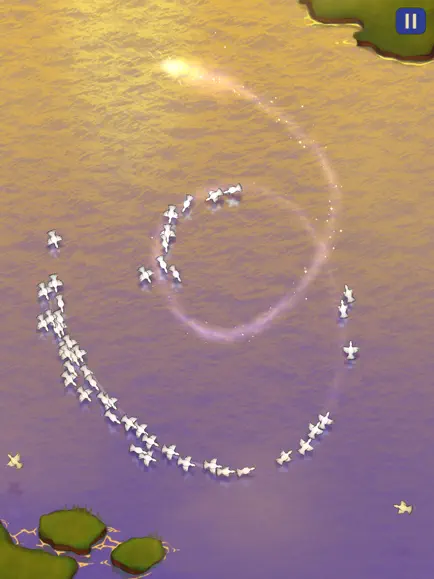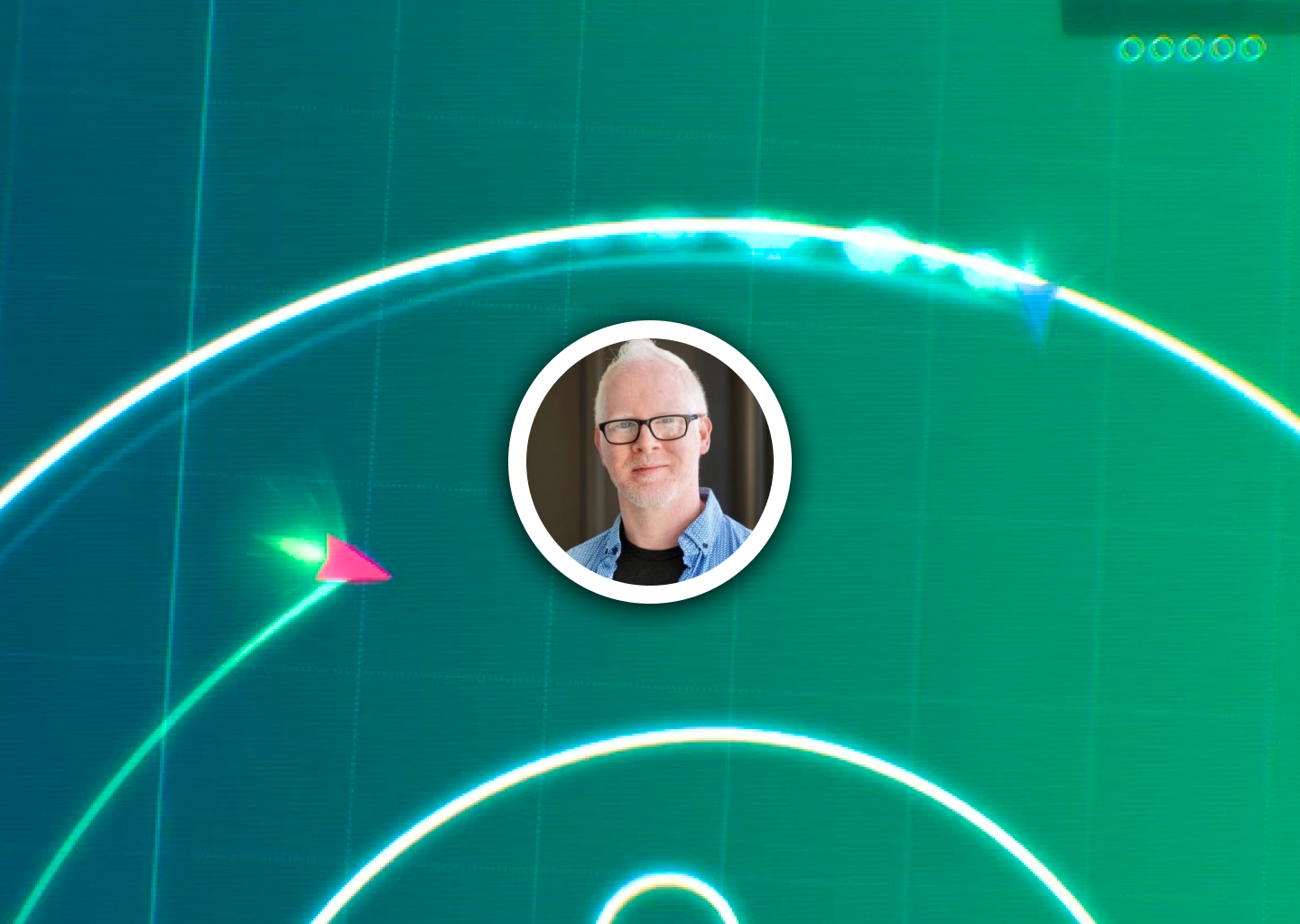Sometimes you come across a game that, over the years, you just keep coming back to over and over again. For me, that's DATA WING, a stylish top-down minimalist racing game that really nails its simple yet profoundly elegant game design.
DATA WING is more than just a stylish game though – it happens to be super accessible, with intuitive and streamlined controls and clear on-screen contrast ratios.
Today on the blog, I sit down with DATA WING creator Dan Vogt to chat about game design, accessibility, and more.
AN: Can you introduce yourself, your background, and how you got started in games?
DV: Howdy, I'm Dan Vogt. I've been in the games industry for over 20 years. I started out when I was a kid, playing with animation packages and modding games on the family PC. When finishing school, I discovered there was a local course that taught game development. Fast forward a little and I'd spend the next ten years building up Halfbrick Studios with my co-founder, also from that course. All Halfbrick's success - Fruit Ninja, Jetpack Joyride - came towards the end of my time there. It was a wild ride but I was burnt out and eventually stepped away from the business. I've spent the last decade (gulp) following my nose. I've developed a few games, run a coworking space, done a bunch of mentoring, and most recently moved into consulting.
AN: DATA WING is distilled down to it's essence with just 2 inputs, and Skyward Journey is further distilled down to one pure input. Can you talk a bit about the design philosophy behind your games?
DV: Ha! Hmm. I actually need to stop and consider this as I'd never thought about it that way...While some designers may dream of intricate systems and how they'll all interact, I'm kinda the exact opposite: I want to start with something bone-headedly simple. I want to test that, ensure it works, and build upon that solid foundation. In both those games, I was aiming for something that was extremely approachable - the design itself didn't create barriers that might scare away players - so I could hook players and take them on a journey. For DATA WING that was all about worldbuilding and storytelling, for Skyward Journey it was about trying to encourage players to be introspective.
AN: When it comes to the topic of "accessibility" in games, what does that mean to you?
DV: I have a pretty unrefined idea of accessibility; it's about being conscious of who you're excluding when designing something and adapting your design accordingly. Why not be inclusive and compassionate in your work? As my process is so user-testing centric, I try to build accessibility into my design decisions from the beginning. After all, I'll be sitting right beside someone when they play my game - within slapping range, essentially - so it's ingrained self-preservation at this point. More seriously, though, I'm visually impaired. I see the world with a 10th the acuity of regular sight. I can't be trusted to drive a car. Because of this, the world I navigate isn't built for me. The design of the built environment - airport signage, cafe menus, bus timetables, app UI designs - is designed around regular sight, a mismatch for my ability. That is, unless they've specifically worked to make their designs inclusive. I feel that lived experience has given me genuine empathy to bring to my work.

AN: Have you played a game that you felt really nailed accessibility? Whether in the art style, controls, etc.
DV: If a game has really clear visual design and an adjustable text size - or HUD scaling - I love it! Beyond my personal experience, Microsoft's work in the space is truly awe-inspiring. Seeing Forza Horizon 5 incorporate signing (American Sign Language and British Sign Language) set a wonderful example for our industry, and was another watershed moment for games accessibility, in my opinion.
AN: For aspiring game developers just starting out, what advice do you have for them entering the industry? I imagine it can feel pretty uncertain for folks, between the layoffs happening right now and the looming questions AI poses.
DV: Video games are an enormously popular form of entertainment that generate incredible income and yet we're seeing unprecedented layoffs and instability. A lot of this is due to new external factors - greedy corporations who are treating our studios and talent like stocks - but there are also entrenched internal factors - the AAA industry is notoriously anti-worker and churns through passionate young workers.
For devs just starting out, I'd encourage you to really consider what your goals are, and what sacrifices you're willing to make. Many before you have entered our industry idolizing a dream studio or career path, spent years moving from country to country, city to city, chasing work, rebuilding after layoffs, only to discover the reality simply doesn't live up to the dream... Statistically, careers in games are short. People get pushed out or fed up. So do your homework! Ask people about their experiences. Stay up to date on industry news. Learn about unions! Video games people are the most lovely, creative, delightful weirdos you'll ever meet and I hope you find a way to enjoy a long career in their company but it simply won't happen by accident. As for AI, I think the tech will find its place in a few years. For now, it looks more like a tech-bubble than anything else. A solution looking for a problem. There'll be useful, limited applications but I don't feel humans will ultimately find AI generated content interesting for so many reasons. And I'm not even getting into the underlying intellectual property issues - there just isn't time. So bottom line, I see a huge potential for AI assisted workflows in the future of our industry - and it's always adopting cutting-edge tech, so get ready! - but it isn't about to be wholesale replaced by AI.
AN: Are there any creators, studios, or games you want to give a shout-out to?
DV: Pretty interested in whatever Good Trouble is cooking up! 👀✨
Cheers Dan, thanks for taking the time for our interview! It was awesome to dive into your perspective, creative process, and outlook 💯
Looking for the very first details on our new game? Want to try and decipher cryptic transmissions that pop up from time to time? 🪐 Head on over to the 🔗Good Trouble Discord server, where we'll always share details, images, and more first!

